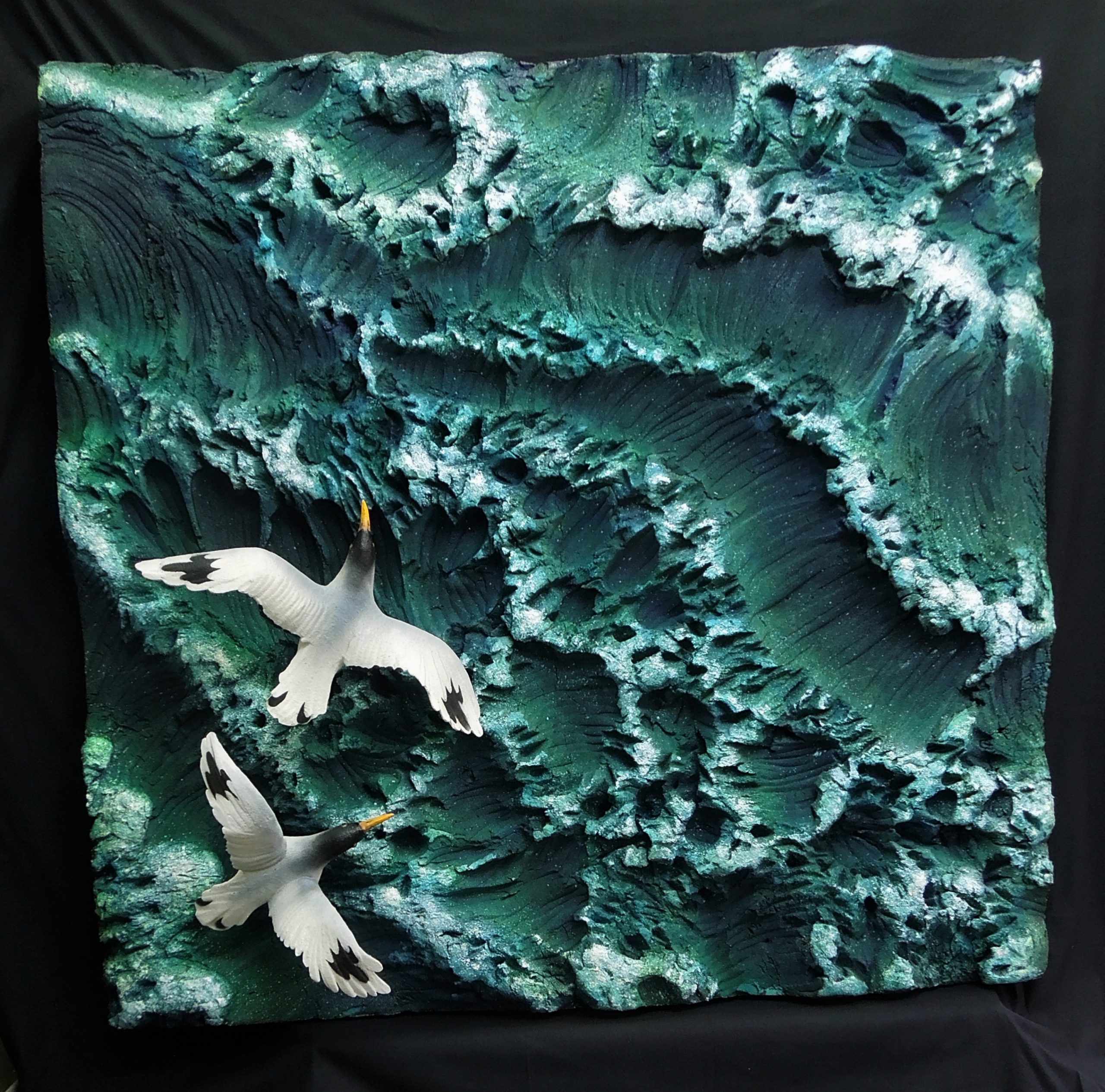
One Sunday circa 1965, while strolling along the Sangone river in his hometown of Turin, Italy, the artist Piero Gilardi stumbled upon something all too ordinary that would inspire an extraordinary new direction in his practice: a pile of trash. This was just a few years after the publication of Rachel Carson’s Silent Spring, but a few decades before “sustainability” became a global buzzword—and the resulting series of works was nothing short of radical.
Believing that “art is life,” Gilardi hoped to catalyze a cultural “re-enchantment” with nature in its ideal, unspoiled state. For his Tappeto-Natura, or “Nature-Carpets,” the artist used intaglio carving techniques to sculpt scenes of pristine seascapes, sunflowers in bloom, ripening papaya and pitaya into highly pigmented, high-pile rolls of polyurethane foam. They were, he explained, “aesthetic objects of practical use,” merging the natural and the artificial, indoors and outdoors, art and design.
A 1967 exhibition of Gilardi’s Tappeti-Natura, or “Nature-Carpets,” at Galerie Ileana Sonnabend in Paris. Courtesy of the artist.
Gilardi first exhibited his “Nature-Carpets” in 1967 at avant-garde galleries of the era, such as New York’s Fischbach and Paris’s Galerie Ileana Sonnabend, as well as alternative spaces like Turin’s Piper Club, where he hung them on the walls as a backdrop for experimental performances featuring his Vestiti-Natura (that would be “Nature-Clothing”). In the 1980s, Italian gallerist and art collector Margherita Stein adorned her Turin home-gallery with a Gilardi rug that looked like a riverbed.
Now, the artist’s carpets and clothing are on display together at Magazzino Italian Art in Cold Spring, New York, as the subject of “Gilardi: Tappeto-Natura” (through January 9, 2023). While Gilardi is known as a protagonist of the Arte Povera movement and as a founder of the International Association Ars Technica, as well as Turin’s Parco Arte Vivente (PAV), an experimental center for contemporary art in nature, this is his solo debut in the U.S.
Gilardi’s “stone” and “birch” dresses, on display at Magazzino. Photo: Marco Anelli / Tommaso Sacconi ©.
Gilardi has long aimed to remove the “frame of artistic representation.” At Magazzino, you’ll find 29 works of his sculpted flora covering walls and floors without frames. To celebrate the opening, dancers from the local Cold Spring Dance Company engaged with the carpets while activating the artist’s stone-like Vestito-Natura (Sassi), one of his two wearable “Nature-Dresses” on display.
Anyone is welcome to sit on Gilardi’s rock-shaped cushions in the lobby, even play catch with them, nodding to early exhibitions where visitors were invited to walk atop and lie down on his rug creations. As curator Elena Re said in a statement, “Overcoming the aesthetic dimension of the product, the art called its audience into play, or, better, people became a lasting part of the artistic process.”
Below, see close-ups of Gilardi carpets on display at Magazzino.
Piero Gilardi, Papaya e pitaja (2018). © Piero Gilardi. Magazzino Italian Art Foundation, Cold Spring, New York. Photo: Marco Anelli.
Piero Gilardi, Cavoli sotto la neve (1974). © Piero Gilardi. Collection of Galleria Girardi, Livorno.
Piero Gilardi, Greto di torrente (1967). © Piero Gilardi. Collection of the Centre Pompidou, Paris.
Piero Gilardi, Girasoli caduti (1967). © Piero Gilardi Private Collection. Photo: Cristina Leoncini.